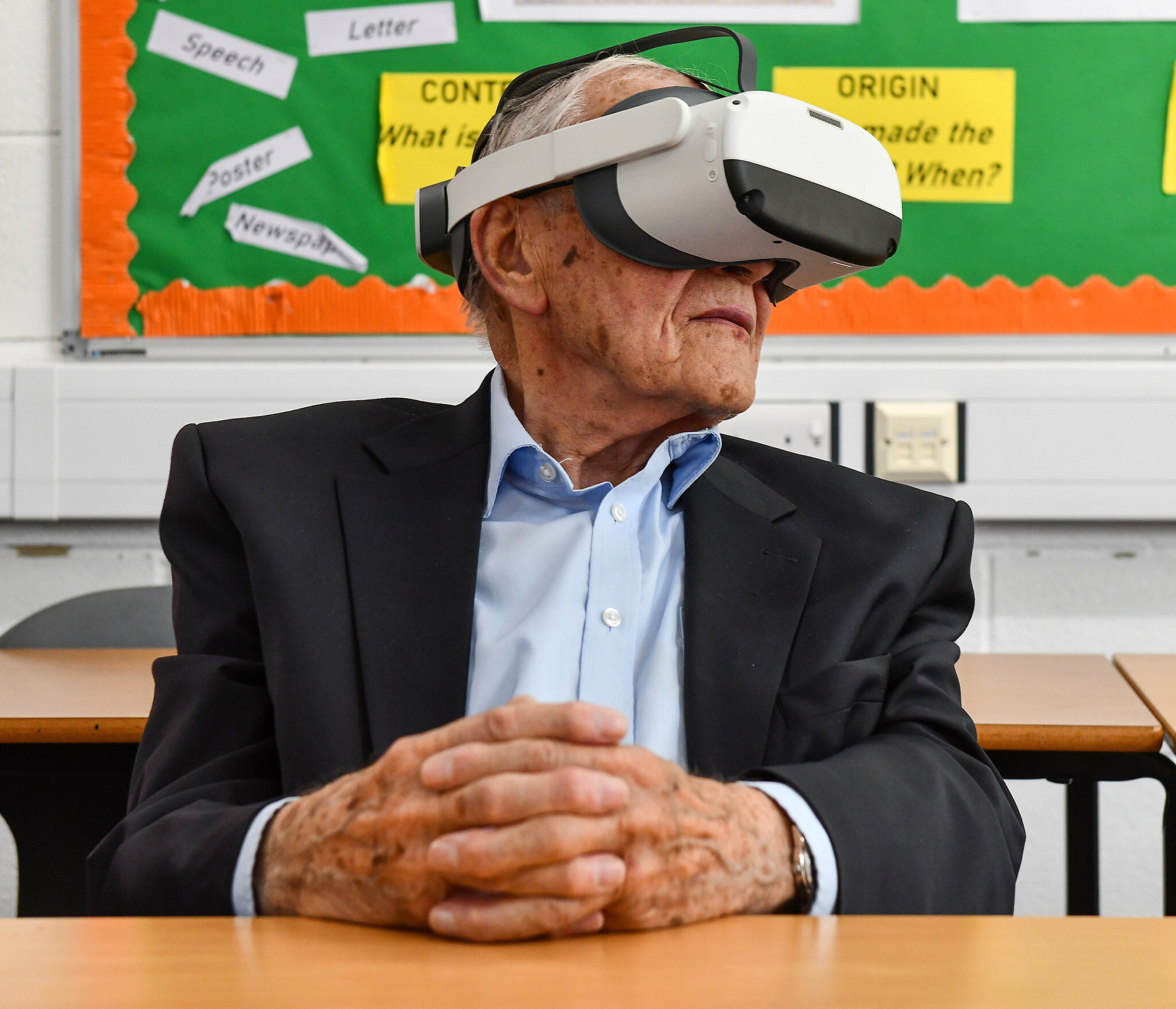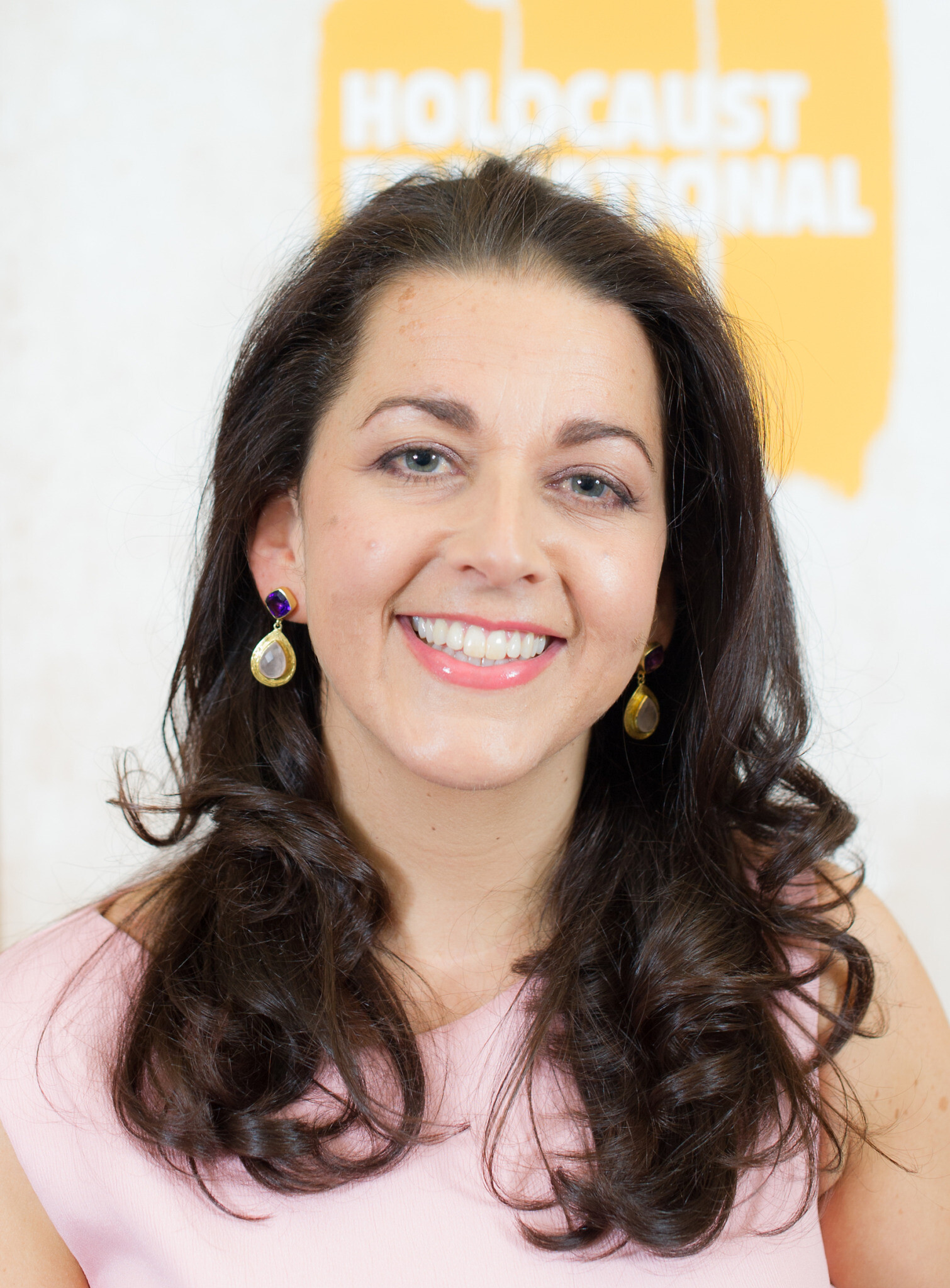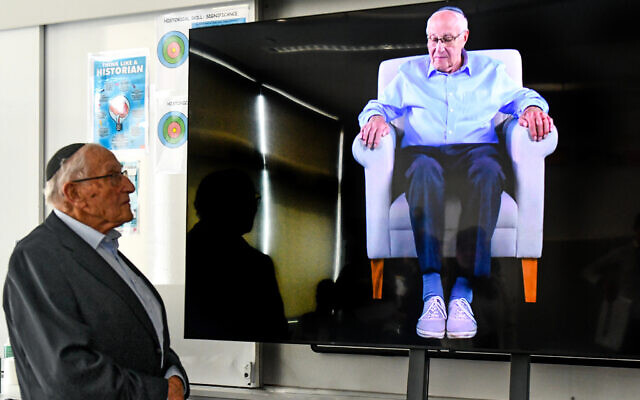OPINION: The ‘miracle’ of using technology to safeguard the stories of Holocaust survivors
Manfred Goldberg is the virtual reality face of a revolutionary educational programming tool. He describes it as ‘close to magic’. HET's Karen Pollock couldn't agree more
This week we launched an educational resource that involves technology we could not have dreamt of many decades ago. Manfred Goldberg certainly couldn’t. Born in Germany in 1930, the television had only just been invented, so perhaps that’s why Manfred describes it as a ‘miracle’ when he watches himself interact online with students and when he visits his hometown without ever stepping foot on a plane but wearing a VR headset.
Manfred was just three years old when the Nazis came to power in Germany, the country of his birth. It was the start of a tortuous journey through ghettos, labour camps, concentration camps and a death march. Manfred’s brother Herman was murdered by the Nazis – to this day he does not know when or where. Miraculously Manfred survived. He made his home in the UK, one of the 732 child survivors of the camps who was granted refugee status after the war.
After a period of recuperation, Manfred was ready to restart his life – he resumed his education, had a career and built a wonderful family. It would be decades before Manfred felt able to re-open the wounds of the past and share the horrors he faced.

However, doing so for that very first time gave Manfred a whole new mission: to tell his testimony to anyone willing to listen.
From Scotland to Cornwall, Manfred has travelled across the country speaking at schools and reaching tens of thousands of students. He will allow nothing to get in his way. Even at the height of the pandemic when schools were shut, this nonagenarian managed to master the complicated tech of Zoom and teams in order to keep sharing his testimony.
Sadly though, we know Manfred cannot continue forever. With survivors becoming fewer and frailer, the world of Holocaust education and remembrance is facing its biggest challenge – how do we ensure that the legacy of people like Manfred lives on, even after they are no longer with us. There is no clear answer. Nothing will ever replace our incredible survivors. But at the Holocaust Educational Trust, we have been determined to safeguard the legacy of survivors like Manfred.

In 2021, as soon as pandemic restrictions were lifted, we went into a film studio, and we embarked on something special – Testimony 360.
Manfred spent five long days being filmed within a green screen rig, from multiple angles at once, using special volumetric capture cameras, answering over 1,000 questions to create an ‘interactive survivor testimony’. It’s hard to explain to those who haven’t seen this remarkable technology yet, but his virtual self can answer almost any question a student may pose about his experiences during the Holocaust – in real time. Combined with virtual reality headsets, students will be able to see the town of Manfred’s birth, and Stutthof, the concentration camp he survived. They get to hear from Manfred without him being there in person.
Piloted already with over 800 students, this week we are taking the programme nationwide. We launched with pupils from Sacred Heart Catholic School in Camberwell – an area with almost no Jewish community, but a school committed to educating about the Holocaust and the antisemitism that led to it. As part of the launch, Manfred visited the school. As he walked into the classroom, the teacher asked if he could show Manfred something before they got started. It was a display board made a few years ago by students from the school who had visited Auschwitz with the Trust and in advance of their visit had met Manfred’s lifelong friend Zigi Shipper BEM z”l. There was a powerful moment as Manfred looked at the photos of Zigi and he reflected on the two boys from Stutthof in the same room, one there in person and as a virtual version of himself; and one there in spirit, on the board.
In incredibly powerful scenes, Manfred interreacted with his virtual self, asking questions of the technological imprint of himself, smiling at the answers. He toured his hometown and the camp where he was imprisoned in virtual reality, from a school in Camberwell. It is beyond what anyone could have imagined in the year of his birth. He described the programme as ‘close to magic’. I couldn’t agree more.
Click here to find out more about Testimony 360.
- Karen Pollock, chief executive, The Holocaust Educational Trust

Thank you for helping to make Jewish News the leading source of news and opinion for the UK Jewish community. Today we're asking for your invaluable help to continue putting our community first in everything we do.
For as little as £5 a month you can help sustain the vital work we do in celebrating and standing up for Jewish life in Britain.
Jewish News holds our community together and keeps us connected. Like a synagogue, it’s where people turn to feel part of something bigger. It also proudly shows the rest of Britain the vibrancy and rich culture of modern Jewish life.
You can make a quick and easy one-off or monthly contribution of £5, £10, £20 or any other sum you’re comfortable with.
100% of your donation will help us continue celebrating our community, in all its dynamic diversity...
Engaging
Being a community platform means so much more than producing a newspaper and website. One of our proudest roles is media partnering with our invaluable charities to amplify the outstanding work they do to help us all.
Celebrating
There’s no shortage of oys in the world but Jewish News takes every opportunity to celebrate the joys too, through projects like Night of Heroes, 40 Under 40 and other compelling countdowns that make the community kvell with pride.
Pioneering
In the first collaboration between media outlets from different faiths, Jewish News worked with British Muslim TV and Church Times to produce a list of young activists leading the way on interfaith understanding.
Campaigning
Royal Mail issued a stamp honouring Holocaust hero Sir Nicholas Winton after a Jewish News campaign attracted more than 100,000 backers. Jewish Newsalso produces special editions of the paper highlighting pressing issues including mental health and Holocaust remembrance.
Easy access
In an age when news is readily accessible, Jewish News provides high-quality content free online and offline, removing any financial barriers to connecting people.
Voice of our community to wider society
The Jewish News team regularly appears on TV, radio and on the pages of the national press to comment on stories about the Jewish community. Easy access to the paper on the streets of London also means Jewish News provides an invaluable window into the community for the country at large.
We hope you agree all this is worth preserving.






















